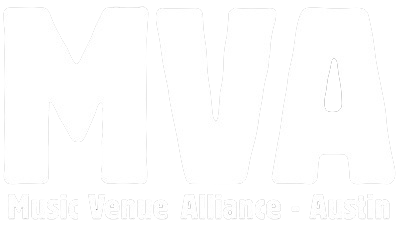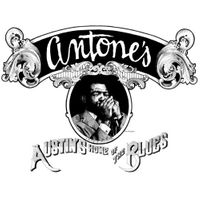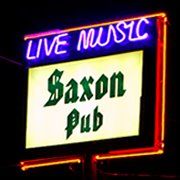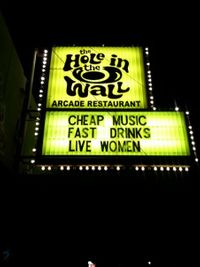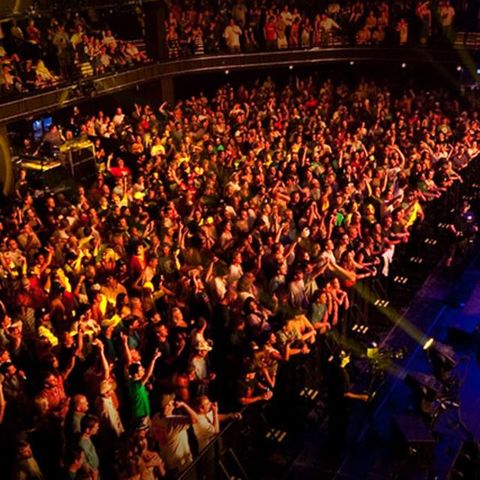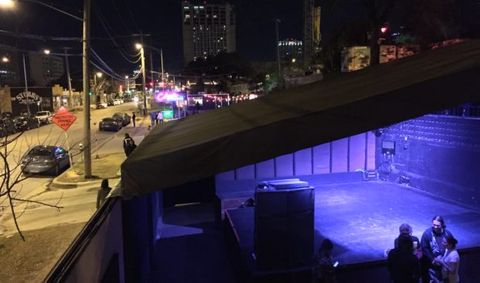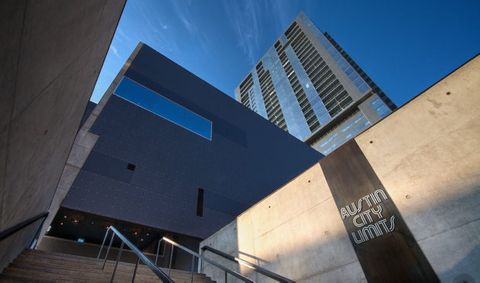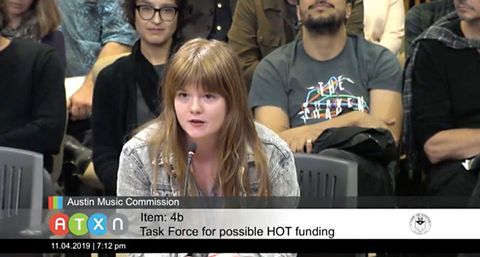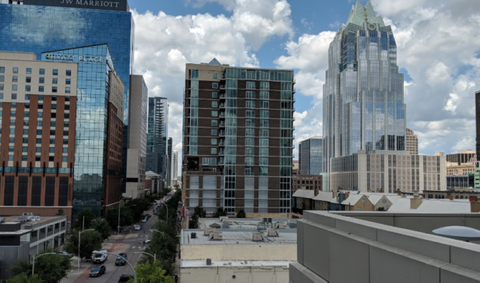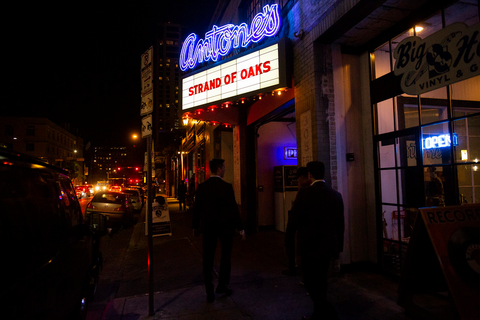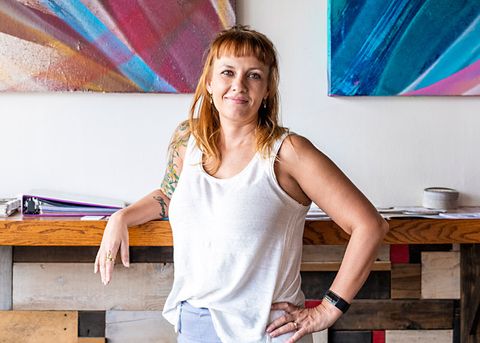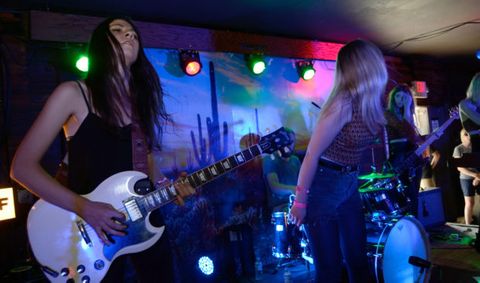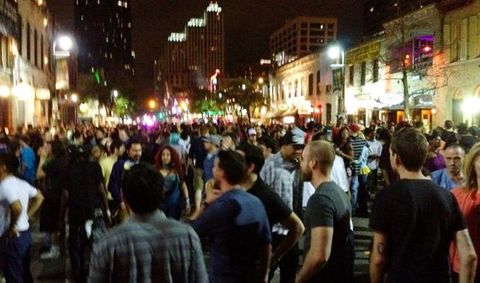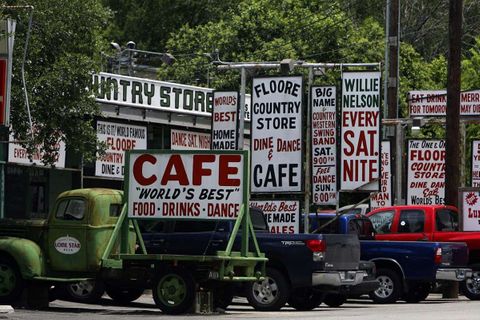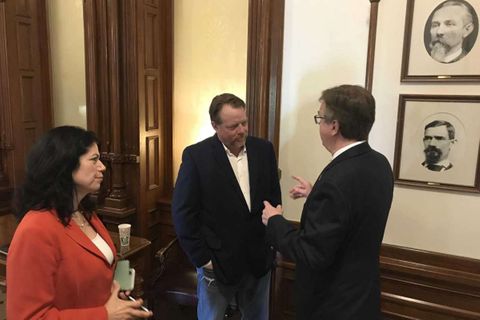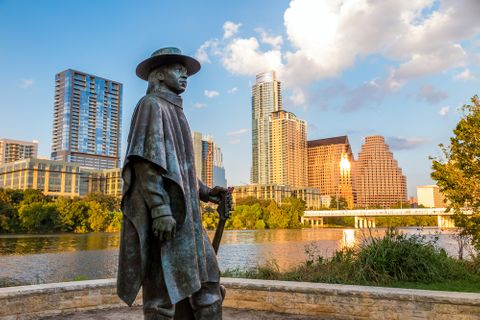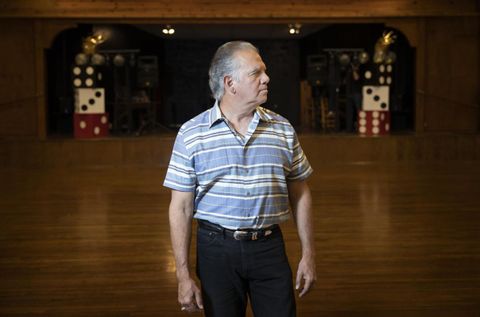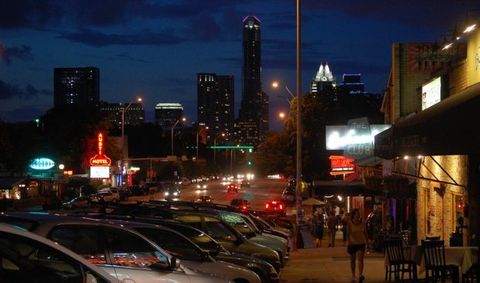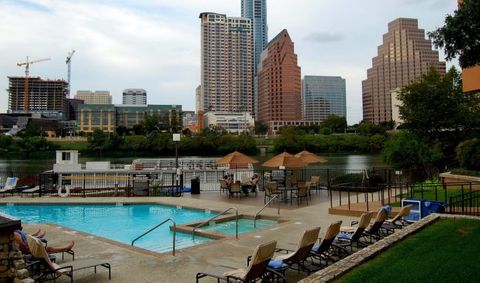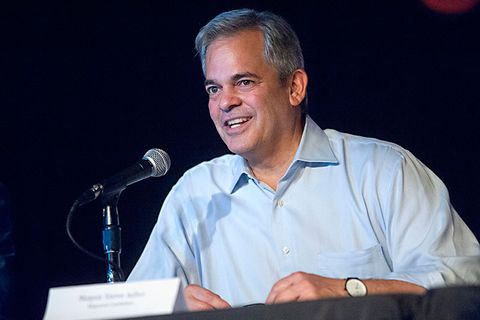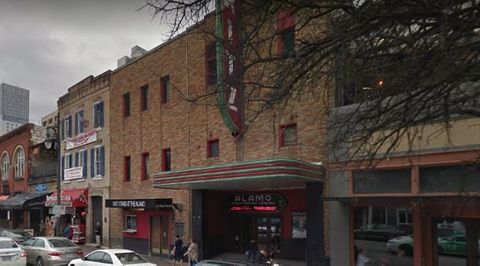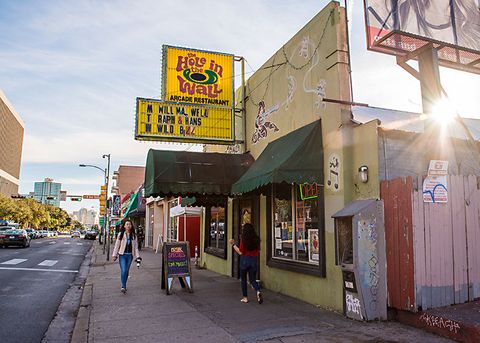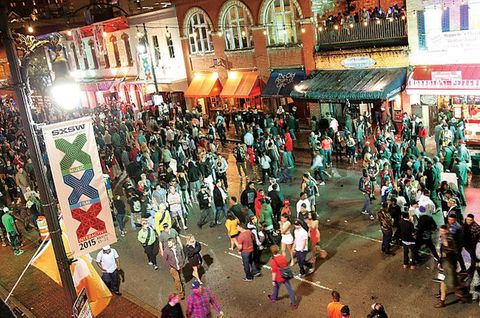Press
Follow coverage of MVAA here:
TESTIMONIALS
“The ongoing advocacy work of...the Music Venue Alliance-Austin is a vital part of our state-wide music industry."
“The ongoing advocacy work of Rebecca Reynolds and the Music Venue Alliance-Austin is a vital part of our state-wide music industry. The health of the music industry ecosystem depends upon the success of the live music industry economy. Without the economic stability of live music venues, the industry will lose its incubators that allow current and future talent to develop their craft. The Music Venue Alliance-Austin uniquely serves an integral role, providing a unified voice for music venues, which in turn helps advocate for scalable economic opportunities for venues throughout the state of Texas.”
- Texas Music Office, Office of the Governor
"The music venues that call Austin home need the MVAA more than ever."
With the challenging variables that music venues are facing in an ever-growing city, it is important for venues to collaborate, preserving what makes Austin so unique. Music Venue Alliance Austin is the vehicle that facilitates that critical collaboration. The music venues that call Austin home need the MVAA more than ever.
- Ryan Garrett, General Manager, Stubb's
"I couldn't be more pleased to finally see Austin music venue owners working together"
As a member of MVAA I couldn't be more pleased to finally see Austin music venue owners working together. We all face similar problems such as rising rents and property taxes, increasing of permits and fees, parking situations, etc. This new organization will certainly help to make the Austin music scene a better experience for patrons and musicians.
-Joe Ables, Saxon Pub
"The formation of Music Venue Alliance Austin has been a critical step in securing the future success of our city’s live music ecosystem."
The formation of Music Venue Alliance Austin has been a critical step in securing the future success of our city’s live music ecosystem. For the first time in Austin's history, music venue operators and other key stakeholders have a cohesive voice to support the collective vision for, and ideals of, our local music community. Through MVAA, many of our long talked about ideas and initiatives finally have the resources and organizational infrastructure to be brought to fruition.
-Will Bridges, Antone's
"The Music Venue Alliance Austin is an invaluable resource for all Austin venues."
The Music Venue Alliance Austin is an invaluable resource for all Austin venues. This community resource provides a vital structure to participate in the development of the Austin music industry, leading to sustainable, equitable, and profitable outcomes for Austin’s venues.
-Erica Shamaly, Division Manager│Music & Entertainment│City of Austin
Here you can follow press on the venue alliance movement:
Austin Music Venues Lobby for Disaster Relief
April 30, 2020
A few days after the South by Southwest Music Festival was canceled but before Austin shut down completely, a line snaked from the door of Empire Control Room, down half a block to the corner of Seventh and Red River streets. Fans packed into the midsize Austin club for a sold-out Kamasi Washington show on March 8. It was a jubilant evening that reimagined jazz as ecstatic worship.
A week later, when downtown clubs should have been celebrating one of their busiest nights of the year, Austin’s entertainment districts had gone eerily quiet. The coronavirus pandemic closed the clubs. Today, the once-bustling stretches of venues and bars are boarded up, with no shows on their calendars for months
See full article here.
moreMusic Working Group Seeks Cooperation, Transparency Between Artists and Venues
Advocates for local musicians are hoping some of the city’s Hotel Occupancy Tax funds for commercial...
moreMusic Commissioners Want Urgency, Care in Spending Hotel Tax Money for Industry
Members of the Music Commission and interest groups related to the city’s music industry are pushing...
moreFaster Than Sound: Goodbye Prop B, Hello HOT Monies
Following the defeat of Proposition B, Austin music advocates brainstorm applications of the first city funding for commercial music.
moreMusic Advocates Seen as Key in Defeat of Proposition B
Updated: 12:20 a.m.: Austin voters have defeated a ballot measure that sought to restructure how the City spends hotel tax funds.
moreThe City Will Help Some Music Venues, Art Galleries And Theaters Afford The Rent
A collection of 26 music venues, theater spaces and art galleries are getting as much as $50,000 each in one-time funds from the City of Austin to cover rent and other property costs.
Earlier this week, the city announced the first group of art spaces and venues to receive funds through its Creative Space Assistance Program, which set aside $750,000 to hand out to qualifying venues. The list includes bars, nightclubs and art spaces such as Cheer Up Charlies, The Museum of Human Achievement and Flamingo Cantina.
moreCouncil Approves $3M Annually from Hotel Tax for Musicians, Venues
For the first time, Austin’s city government will provide direct annual funding to the local commercial music industry.
moreAdd a blog postFaster Than Sound: Music Advocates Say Convention Center Expansion Key to Unlocking City Funds
Long before the concept of expanding the convention center became the hotly debated civic issue it is today, music advocate Rebecca Reynolds had her eye on a specific bucket of city funding – she just wasn't sure how to get it yet.
The target: hotel occupancy tax (HOT) funds. Collected from visitors, the third-largest source of city tax revenue currently benefits nonprofit arts groups exclusively – the commercial music industry doesn't see a penny. Under Reynolds' leadership, a coalition of music supporters, Music Makes Austin, now pushes for a major funding shift that would finally get them a piece of the HOT action.
moreMusic Advocates Push for a Share of Hotel Taxes for Local Music Industry
Local groups organized around improving the financial standing of Austin musicians are preparing to push city leaders to dedicate funds from the proposed expansion of the Austin Convention Center toward the city’s commercial music industry.
The groups include Music Moves Austin, the Music Venue Alliance and members of the Red River Cultural District. Their initial projections say around $3 million per year from the city’s portion of the Hotel Occupancy Tax could help subsidize touring musicians and reimburse Austin clubs for booking local acts.
moreCity Releases Road Ma
The city’s Economic Development and Development Services departments will spend much of the next 12 months implementing a variety of measures to reduce noise complaints and other issues that arise between residents and nearby entertainment businesses.
On Wednesday, EDD released a summary of the steps that will need to be taken at the administrative level to address sound compatibility issues, with improved enforcement of noise violations one of four key focus areas.
moreTexas Bill Could Help Save Honky Tonks and Venues
AUSTIN (KXAN) — A bill that would offer a funding boost to small live music venues in Texas has progressed in the Texas legislature, but it now faces crunch time in the final days of the Texas legislative session.
Update: as of Wednesday morning, the bill has been placed on the Senate intent calendar.
HB 2806, authored by Representative Geanie Morrison (R-Victoria), would set up the Texas Music Incubator rebate program, which would offer tax relief for certain small, live music venues and music festivals.
moreTexas Honky Tonks Turn to State Legislature for Help
The Texas dance halls and honky tonks that launched legends like Willie Nelson, Waylon Jennings and Lyle Lovett are turning to the state government to help them keep the pipeline of music stars flowing from the Lone Star State.
moreBipartisan Support for Music Venue Bill
he Texas House on Wednesday passed on to the Senate a bill that would allow businesses with a live music venue to withhold a percentage of their taxes in the name of music preservation in Texas.
The vote drew almost no media attention. Support for the bill was exceptionally bipartisan, by recent legislative standards. And because of that, chances of it becoming law before the end of this 86th session of the legislature look good.
moreTexas Senate to Consider Music Venue Tax Rebate Bill
State lawmakers are considering creating a Texas music incubator rebate program, which would provide certain music venues and festival promoters with rebates funded by mixed-beverage gross receipts and sales taxes collected by those venues and festivals.
The Texas House passed HB 2806, sponsored by state Rep. Geanie Morrison, R-Victoria, on April 24. It is now being considered by the Texas Senate, where it was referred to the Business & Commerce Committee.
moreTax Relief for Texas Music Venues
AUSTIN – Texas music venues may soon see some tax relief depending on the success of a bill in the Texas legislature.
moreEnforcement is Key to Success of Agent of Change
By the end of this month, City Council could start considering a number of policy and operational changes – including a revision to the sound ordinance and more stringent enforcement of noise disturbances – to try to alleviate growing friction between nightlife businesses and nearby residences and hotels throughout the city.
moreMusic Commission Pushes for Action on Agent of Change
Members of the city’s Music Commission are pushing staff for action to produce an “agent of change” ordinance that City Council can vote on to bring some clarity to friction between entertainment venues and nearby hotels and residences.
moreAustin Learns from Agent of Change in Other Music Cities
If Austin is to make real progress in its new round of trying to pass an ordinance intended to calm noise complaints between residential buildings and entertainment venues, a number of lingering issues from the shelved 2017 effort will have to be resolved. Among them: how to properly enforce the city’s sound ordinances in popular music and entertainment districts, and to what degree developers and residents of condominiums and hotels bear responsibility for coexisting with music venues that may predate new surrounding construction.
moreAgent of Change Returns
Austin not only deserves a progressive music policy when it comes to dealing with the compatibility of music venues and new residential developments, it demands it. What other municipality is so inextricably linked to live music, while constantly ranking among the fastest-growing cities in America?
moreMusic Venue Defined in CodeNEXT
A "music venue" has never been expressly defined in Austin's land use code, instead getting lumped into "bar/nightclub" designations – much to the chagrin of music advocates.
"Clarifying that is important because we don't need to protect bars and nightclubs," says Rebecca Reynolds of Music Venue Alliance Austin (MVAA). "It's profitable to run a bar; it's not profitable to run a music venue. Both have the same revenue streams, but music venues give up a big chunk of that to pay for talent, lighting, sound, and booking, and they have a different cultural value."
moreLonger live music hours on Red River will remain in place
Longer live music hours on Red River Street will stay for good, after a yearlong test that drew widespread praise and support.
Austin City Council members agreed unanimously Thursday to permanently allow venues in the Red River Cultural District, between Sixth and 12th streets, to play amplified music until midnight on Thursdays and 1 a.m. on weekends — an hour later than previously allowed. Interests as disparate as neighborhood groups and the bars they often complain about called the pilot program that began in May 2017 a resounding success.
moreLive music proponents revive ‘agent of change,’ with eye toward fall
After it lay dormant since July, city leaders and music industry professionals are restarting the process that – it is hoped – will protect live music venues and nearby residential buildings from clashing over noise and general quality-of-life issues.
Known as “agent of change,” the concept would place the responsibility on the new business or development moving into an area to mitigate or lessen the impact of sound on guests and residents in a given area.
That means, in theory, that new hotels and condominiums constructed near entertainment districts would need to acknowledge the presence of nightlife nearby and take steps such as soundproofing rooms and homes to ensure guests and residents aren’t unreasonably disturbed. The opposite would hold true as well, with entertainment businesses moving into residential areas, thanks to increasing downtown rents, needing to make sure loud music or other activity doesn’t disturb longtime residents.
morePlayback: Strike Up the Bond
Sixteen months ago – long after announcement of the ambitious Omnibus fix-all, and long before the subsequent fumbling of venue-friendly policy – Mayor Steve Adler's office announced a scheme to preserve live music spaces threatened by vaulting rent and boundless development: a mini-bond program crowdsourcing funds to acquire a venue's land, which would then be rented back to the club at an affordable rate.
Its billing as "a creative solution for the creative class" wasn't hubris. "Playback" imagined that low-risk $500 bonds could be an attractive investment for creatively conscious citizens and perhaps even become a popular gift item: "Happy birthday, Aunt Dana, here's two shares of the Broken Spoke property." More importantly, the mini-bonds would be low hanging fruit for wealthy tech companies who need to back up their live music capital lip service with some actual capital.
moreU.K.'s Music Venue Trust Expands to Austin, Texas and Targets State Liquor Tax
The group wasted no time in shoring up the local venue community.
The U.K.'s Music Venue Trust, which advocates for small venues around London, has announced its first international chapter planned for another hub of live music: Austin, Texas. Music Venues Alliance Austin, headed by attorney Rebecca Reynolds, aims to protect and improve the city's music culture. MVAA says more than 30 venues around town have already joined the network.
"Although we have our own unique drivers for what threatens the future of Austin music venues, the core challenges are the same; gentrification, rising rents, a lack of cultural acknowledgement and respect for the work they are doing, and a music industry that needs to start backing these spaces if they are to continue to develop new and emerging talent," Reynolds says.
more